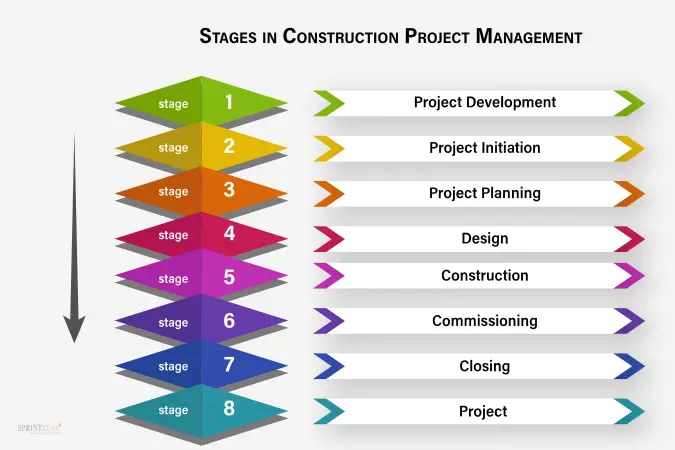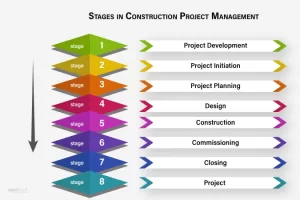
09 Mar All PMs Should Start as Construction PMs

Admittedly this is a personal view and one shaped by my own experience, but I think that for anyone wanting to get started in project management, in order to really understand it and gain a significant amount of experience in a short amount of time, they need to start as a Construction Project Manager (preferably with a company that acts as both general/prime and subcontractor).
Construction is unique in the project management realm as it’s arguably one of the most mature (certainly the oldest) while at the same time not bound/beholden to any ‘methodology’.
Being a Construction PM is a great learning ground. You’re given full authority to make decisions, while at the same time the full accountability for those decisions (good or bad). You learn how to estimate work, define scope, prepare bids, negotiate contracts, and manage vendors. You’ll learn materials pricing, vendor selection, quote comparisons, and RFP, RFQ, and RFI processes.
You’ll learn how to be accountable and get things done, because if you don’t, you’ll be replaced. When a project is later or over budget, they’re not going to call the Superintendent or Foreman and ask why, they’re going to call the PM (I call this ‘Perform or Perish’).
You’ll be exposed to multiple different types of contracts, both public and private (fixed price, negotiated, cost plus, etc.), and different legal and regulatory requirements (Federal, State, County, City, Tribal, etc.) and you’ll learn how to reada contract and understand the legal implications/ramifications of clauses (the famous Van Halen ‘brown M&Ms’ clause was there to show who hadn’t read the contract thoroughly enough). And when you inevitably get that part wrong, you’ll learn why it’s important as you prepare a defense and learn how ‘construction claims’ work.
You learn how to prepare plans and schedules with a team, how to negotiate with clients when those plans don’t line up with their ‘wants’, and how to assess, price, and negotiate changes. And you’ll learn how to ‘value engineer’ and make trade-offs to get the plans and final project down to within the client’s budget and timeframe.
You’ll learn to think in three dimensions and think 3-4 weeks ahead because everything has to go together like a life-size Jenga set or you have to take things apart and do them again (which costs money and ruins everyone’s day). And you’ll learn how to sequence activities because you’re always trying to put 10 people in a space big enough for 2. You’ll learn about Earned Value, Critical Path, Critical Chain (without ever using those names), lean planning, productivity rates, and WIP.
You’ll learn time management, because as a general and subcontractor Const PM you’ll always have more than one (lots actually) project at any given time. You’ll learn how to adapt and replan on the fly due to rainouts, late deliveries, manpower shortages, or other trades being in your way. You’ll learn that 8-5 rarely exists in the real world because sometimes the work has to be done at 3 am.
You’ll learn client engagement and satisfaction, and how to deal with people (usually inspectors) that are ‘never’ satisfied. You’ll learn to deal with unreasonable demands, obscure requirements, and sometimes just stupid ideas.
You’ll learn that it’s never personal, it’s always about getting the job done. Tempers may flare, language may get heated, but it’s not about ‘you’, it’s about the pressure to get things done.
(In my early career I once told a client to ‘f*ck off’’. My boss called me into his office and told me we generally try to not tell our clients to f*ck off, and that was the end of it. Neither I, my boss, nor the client ever mentioned it again. In fact, the client and I went to lunch together the next day.)
Working as a general/prime and sub is an added benefit, as you get to experience and learn from both sides of the table – being ‘responsible for’ the project, and being ‘answerable to’ those responsible for the project. On one end of the spectrum you’re hiring other contractors and needing them to perform, on the other, they’re looking at you to perform to their needs.
Two very different perspectives.
You learn how pricing works ‘to’ another party and ‘from’ another party, and have to balance those.
All of this is done without ever using the word ‘methodology’. There’s no Agile, no Waterfall, no iterative or incremental delivery. ‘Phases’ are defined by the areas of work, the availability of the areas, the financing, or the order in which things need to be built logically, not by a methodology.
I had worked as a Construction PM for 10 years before I had even heard of PMI, or that there were these things called ‘methods’. I learned by doing, by seeing how others in the firm were doing things, and frankly, by doing things wrong. We gathered as a group regularly (both office and field staff) to talk about what was working, what wasn’t, who needed what, and when, and we adjusted what we were doing to accommodate these needs. None of it was ‘right’ or ‘wrong’ according to any standards, it was all about what worked.
And if something worked well on one job, it was adopted almost immediately at all of the others. Construction is all about ‘efficiency’, not process.
To the best of my knowledge, there’s only one certification in construction – Certified Construction Manager, and it has nothing to do with any specific ‘methodology’.
And the Agile Principles… they’re built into how construction works. They’re just balanced by the real-world needs of a very money-driven, litigious industry.
You’ll gain experience in human resources, finance, cashflow, A/R & A/P, profit/loss, profit/margin (and why those two are different), operations, logistics, procurement, people management, client management, sales and marketing… well, just about every aspect of ‘business management’ there is.
And all of these are transferable to other sectors outside construction. There will be some adjustment needed, and there is a gap as construction is less ‘technical’ than other fields, but I think it’s easier to go from construction to another field, than another field to construction. But you’ll have a broad, general knowledge of business as a foundation.
You’ll also learn how to fail. NO project goes to plan, and no CPM has ‘never’ experienced a job gone bad. But as said at the beginning, you’re the one accountable.
And you’ll learn the single, most important lesson – you’ll learn that you’re NOT the ‘star of the show’.
No matter how big or important your title may be or sound, it’s the people in the field who are the stars. They’re the ones doing the work. You’re a support role. If ‘you’ don’t show up one day, the work still goes on. If ‘they’ don’t show, no work happens.
So you learn how to look out for your people, take care of them, and help them as best you can (some of my biggest arguments on-site were about defending my teams).
And last, this is a gender-neutral role.
I’ve worked with some fantastic women in the construction industry.
Article written by Trevor K. Nelson Project,Program,Portfolio and PMO Leadership.
https://www.linkedin.com/pulse/all-pms-should-start-construction-trevor-k-nelson-mkwtc/?trackingId=15l34Kx0RUSB6OLByqppEQ%3D%3D
